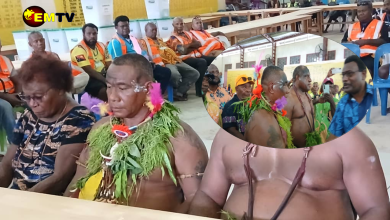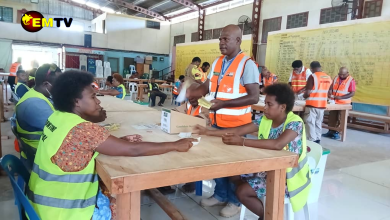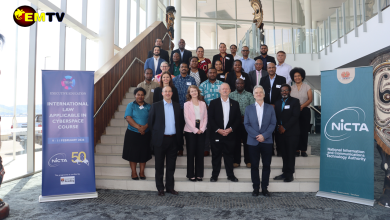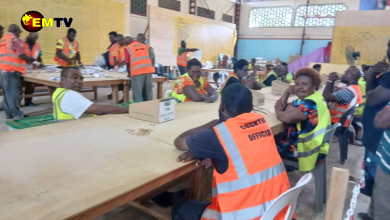NEW TOOLKIT FOR PACIFIC CLIMATE ADVOCATES AHEAD OF COP28
Climate change has had a great impact on many islands and countries in the Pacific Region for the past decades. With the ever looming effects of climate change right across the Pacific , recently the World Health Organization ( WHO) has started a campaign to be climate champions as they stand to advocate on the various stance to take to reduce and minimize the emissions from harmful gases and stop the temperature from rising.
WHO has recently launched a tool kit ahead of the COP28 containing various arguments and evidence that health professions and staunch supporters of health and also citizens can do to advocate for climate change.
“All of us living here in the Pacific know that climate change is real – we are already seeing its impacts in our daily lives,” said Dr Mark Jacobs, WHO Representative to the South Pacific and Director of Pacific Technical Support.Dr. Jacobs also elaborated on the changes that climate change will have on the environment, saying , it will have a big impact in lowering global carbon emissions. If they do that, everyone’s health will benefit.
From November 30th to December 12th, participants will converge in Dubai , the United Arab Emirates for the COP28, the United Nations Climate Change Conference. This conference will see world leaders, scientists in the field of environment and other experts and agencies in the UN come together to advocate as well as do awareness on the great impacts that climate will have on the economy , health and social well being of everyone.
Health impacts caused by climate change include death, illness and injuries caused by extreme weather events, heat stress, waterborne and foodborne diseases, malnutrition, and the negative mental health impacts of people facing disasters or being displaced from their homes.
Meanwhile supercharged storms and rising sea levels are threatening fragile healthcare facilities at the time they are needed most.WHO has recently launched a tool kit ahead of the COP28 containing various arguments and evidence that health professions and staunch supporters of health and also citizens can do to advocate for climate change.
“All of us living here in the Pacific know that climate change is real – we are already seeing its impacts in our daily lives,” said Dr Mark Jacobs, WHO Representative to the South Pacific and Director of Pacific Technical Support.
Dr. Jacobs also elaborated on the changes that climate change will have on the environment, saying , it will have a big impact in lowering global carbon emissions. If they do that, everyone’s health will benefit.
From November 30th to December 12th, participants will converge in Dubai , the United Arab Emirates for the COP28, the United Nations Climate Change Conference. This conference will see world leaders, scientists in the field of environment and other experts and agencies in the UN come together to advocate as well as do awareness on the great impacts that climate will have on the economy , health and social well being of everyone.
Health impacts caused by climate change include death, illness and injuries caused by extreme weather events, heat stress, waterborne and foodborne diseases, malnutrition, and the negative mental health impacts of people facing disasters or being displaced from their homes.
Meanwhile supercharged storms and rising sea levels are threatening fragile healthcare facilities at the time they are needed most.






